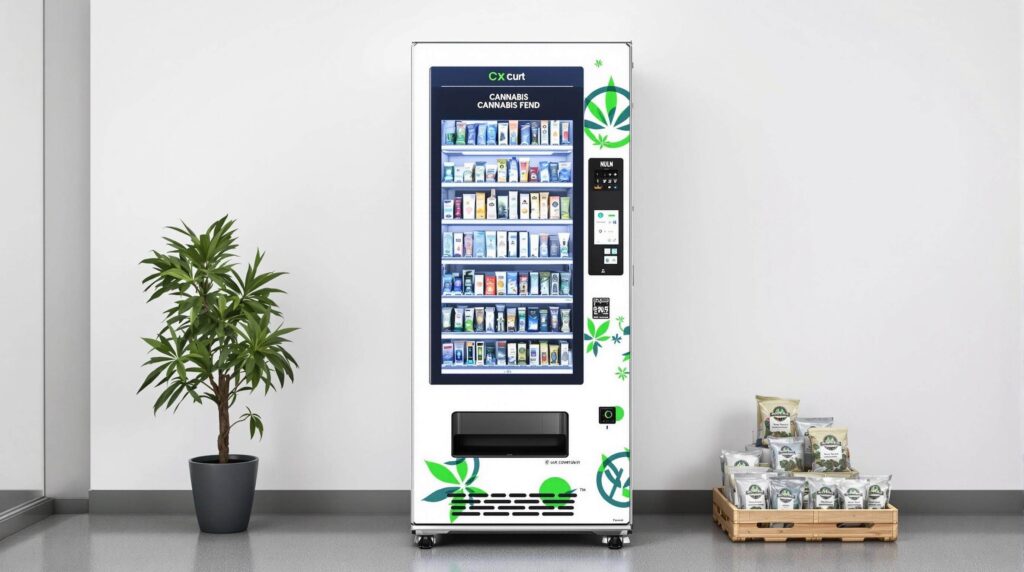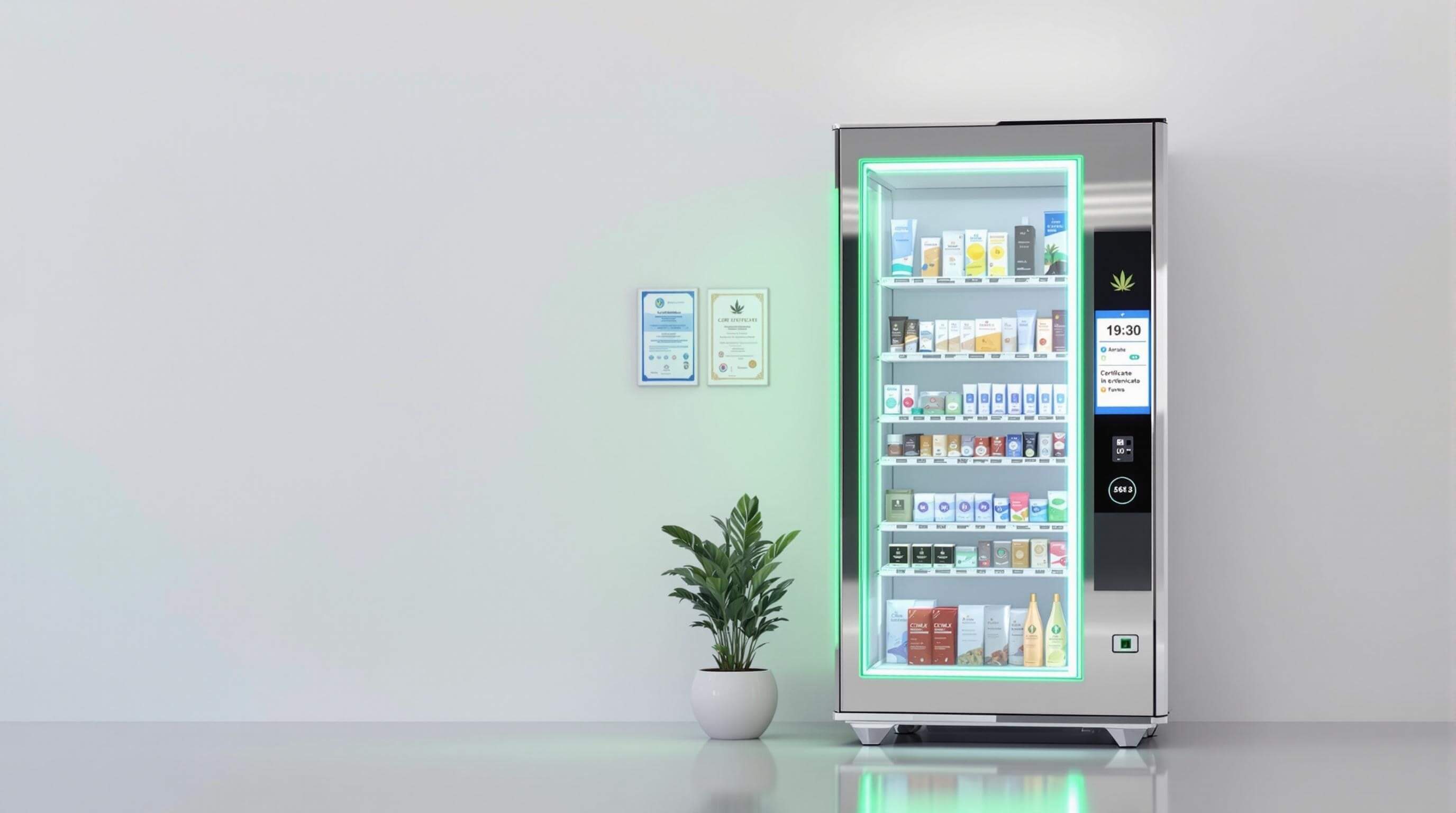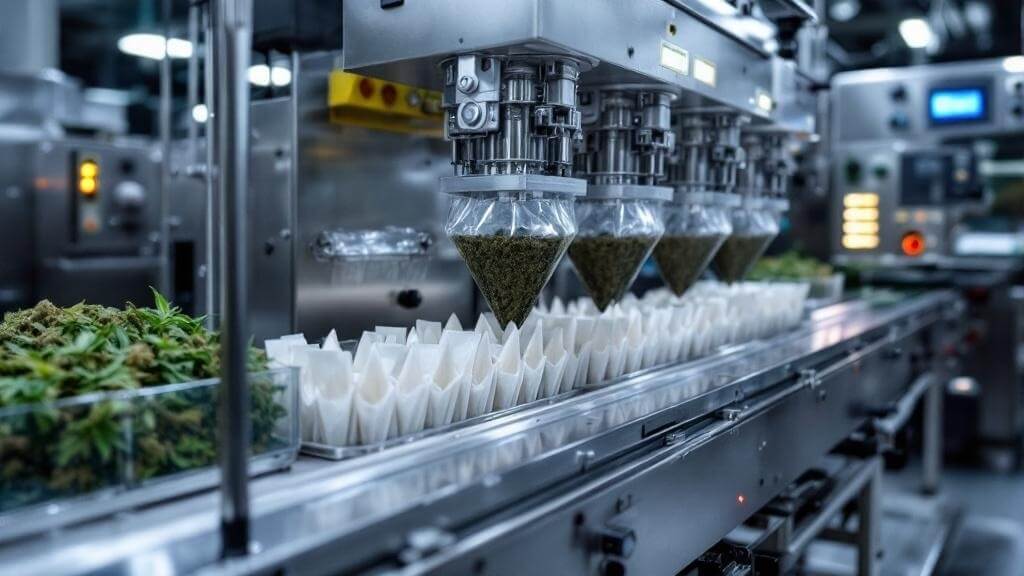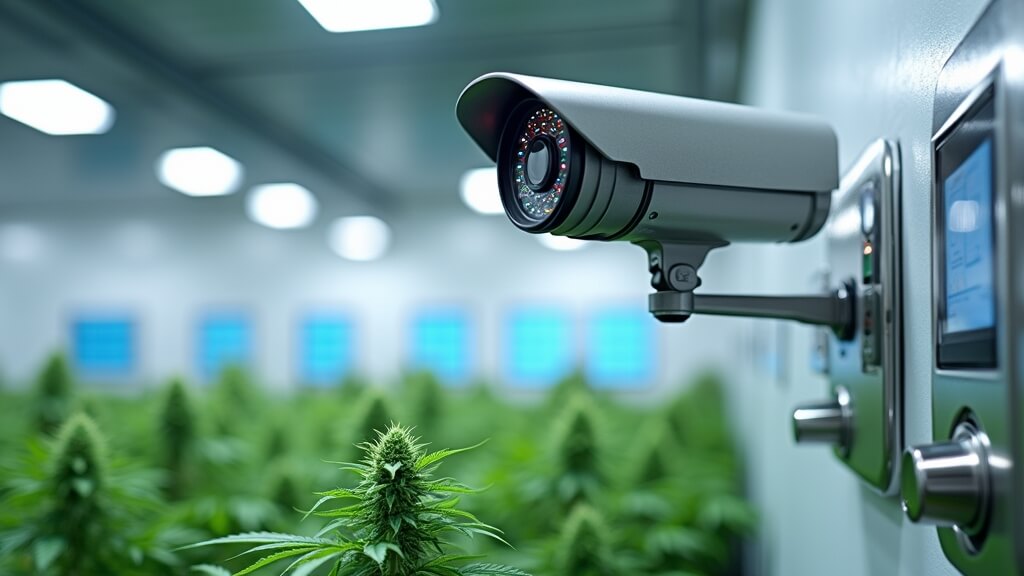Cannabis vending machine startups typically cost around $30,000 for initial equipment, considerably less than traditional dispensaries which require $750,000 to several million. Operators must budget for advanced ID verification technology, strategic location fees, and regulatory compliance costs which vary by state. Ongoing expenses include maintenance, inventory management, and transaction processing fees ranging from $1,000 to $150,000 annually depending on operation scale. Further exploration reveals substantial labor savings compared to conventional retail models.

Seven critical cost factors determine the financial viability of cannabis vending machine operations. The initial investment represents the most notable upfront expense, with sophisticated machines featuring advanced ID scanning technology commanding premium prices. While these machines require substantial capital, their startup costs remain dramatically lower than traditional dispensaries, which typically require $750,000 to several million dollars. The median startup costs for a cannabis vending machine business hover around $30,000, though additional installation expenses must be factored into the budget.
The cannabis vending industry presents a financial paradox: substantial upfront investment yet dramatically reduced startup costs compared to traditional dispensaries.
Licensing and compliance expenses constitute another major consideration for entrepreneurs entering this space. Application fees in some states can reach hundreds of thousands of dollars, with additional proof of assets often required beyond the basic fee. The regulatory landscape continues to evolve across the 24 states plus Washington, D.C. where cannabis is legal as of early 2025, creating a complex compliance environment for operators.
Strategic location selection considerably impacts profitability in the cannabis vending machine business. Prime locations command premium rent or placement fees, but the investment typically pays dividends through increased sales volume. High-footfall areas can generate considerably more revenue, ranging from a few dollars to several thousand weekly, particularly near college campuses and complementary retail establishments.
The reduced staffing requirements represent perhaps the most compelling advantage of vending machine operations over traditional dispensaries. While conventional cannabis retailers spend approximately $250,000 annually on personnel, vending machines require only minimal staff for maintenance, restocking, and cash collection. These labor savings can be reinvested to lower product pricing and drive demand. Many operators appreciate how vending machines serve as passive income generators while requiring minimal oversight compared to traditional retail operations.
Maintenance costs, though lower than dispensary upkeep, require budgetary consideration for technical malfunctions and potential vandalism repair. Regular servicing ensures continuous operation and maximizes revenue generation. Companies like ACE in Colorado offer machines with impressive product capacity that can hold up to 1,152 different cannabis items, reducing the frequency of restocking visits.
Inventory management also impacts profitability, as efficient supply chain logistics and strategic restocking schedules help control operational expenses. Ongoing operational costs include energy consumption, payment processing fees, internet connectivity, and ID verification technology maintenance. These recurring expenses typically range between $1,000 and $150,000 depending on operation scale and machine sophistication.
Despite these costs, the overall economic efficiency of cannabis vending machines often provides operators with competitive advantages in an increasingly crowded marketplace.
Frequently Asked Questions
What Licensing Requirements Exist for Cannabis Vending Machines?
Cannabis vending machines require both state and local licensing in jurisdictions where they are permitted, such as California, Colorado, and Massachusetts.
These machines typically operate under existing dispensary licenses rather than standalone permits. Operators must comply with age verification requirements, seed-to-sale tracking systems, and security protocols mandated by state cannabis control agencies.
Local zoning restrictions often limit placement to licensed dispensary premises only. Annual renewals of business licenses and ongoing compliance reporting are mandatory for continued operation.
How Are Age Verification Systems Implemented in These Machines?
Age verification systems in these machines employ multiple technologies to guarantee compliance. Facial recognition software analyzes biometric features to estimate age, while ID scanners validate government identification documents.
These systems often connect to government databases for real-time verification of identity. Biometric sensors provide additional authentication layers, and the machines maintain thorough digital logs of all transactions for regulatory review.
The verification process occurs before any product is dispensed, creating an effective barrier against underage access.
Do Machines Require Special Security Features Against Theft?
Cannabis vending machines require robust security features to prevent theft. They typically include heavy-gauge metal casings (1.8mm steel), double-locking mechanisms, and tamper-resistant hardware.
Many machines can be permanently bolted to floors or structures and incorporate surveillance cameras, motion sensors, and tamper alarms that connect to dispensary security networks.
These systems often meet DEA-approved safe standards and include remote monitoring capabilities that enable real-time oversight through web or mobile management platforms.
Can Vending Machines Dispense Different Cannabis Product Types?
Cannabis vending machines can indeed dispense various product types simultaneously. Advanced models accommodate up to 1,152 products, including flower, concentrates, edibles, vape cartridges, and topicals.
These machines feature multi-dispense systems with customized mechanisms for different packaging formats like jars, tubes, and boxes. Some units include refrigeration for temperature-sensitive items such as certain edibles.
Both THC and CBD products can be dispensed, though specific offerings depend on state regulations and local compliance requirements.
What Ongoing Maintenance Costs Should Operators Expect?
Operators can expect several maintenance expenses for vending machines. These include routine equipment checks (5-8% of revenue), software updates, cleaning protocols, and age verification system testing.
Technical repairs and part replacements vary based on machine complexity. Additional costs encompass cash collection services, inventory management systems, and remote monitoring subscriptions.
Operators must choose between outsourcing maintenance (typically 5-15% of annual revenue) or developing in-house capabilities, which requires specialized knowledge and equipment investments.









